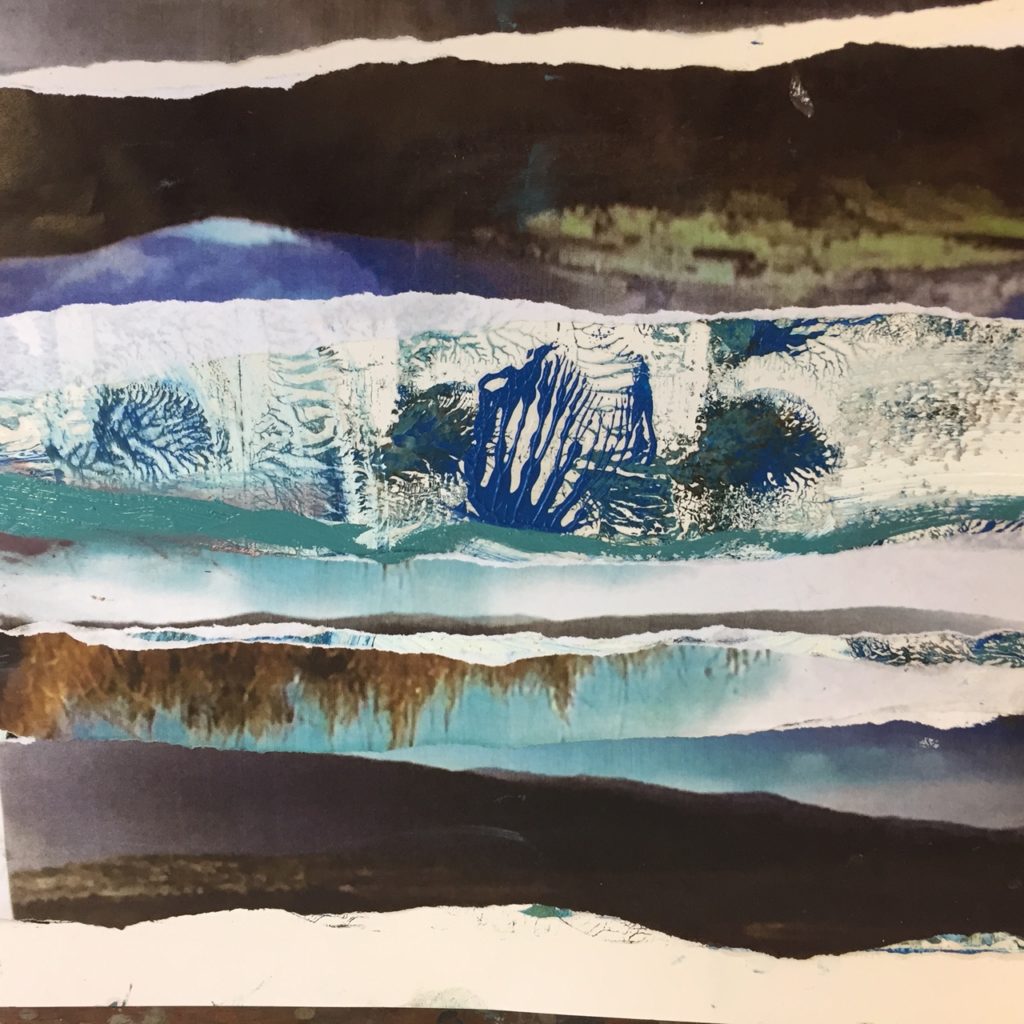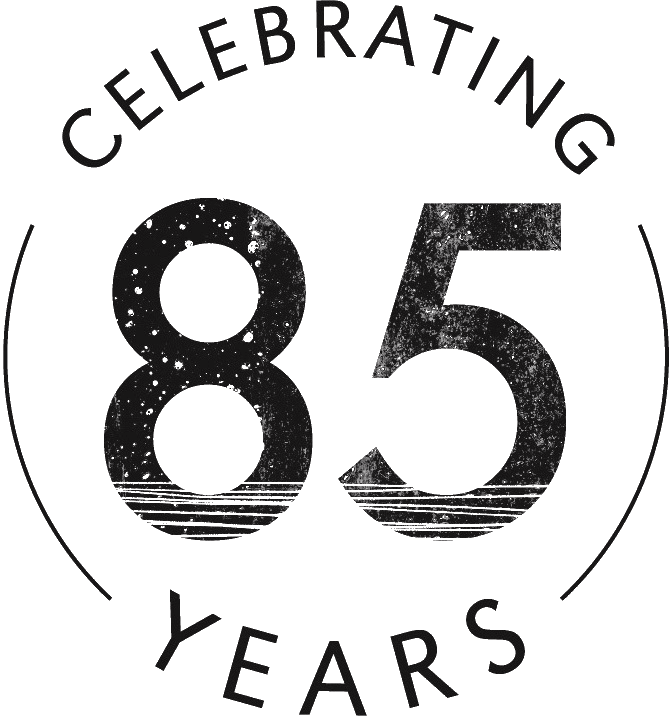Course details
Explore the benefits of collage and montage to create textured, multi-layered mixed media paintings. Enjoyable for complete beginner or experienced artist alike.

Enjoy the expert tuition of two St Ives artists, Marion Taylor and Liz Luckwell, – and join us for this innovative approach to exploring looser ways of working and taking you towards abstraction. Working with everyday items such as scraps of paper, photographs, newspaper, maps and musical scores, see how collage and montage can add depth and texture to your paintings.
We start with an introduction into the fascinating history of collage and learn how collage can be used to resolve compositional dilemmas as well as a technique in its own right. Bringing a range of differing surfaces, colours, shapes and compositions into play, collage is an accessible medium suitable for beginners and more experienced artists alike.
Using both collage and montage techniques combined with mixed media painting, see how they can be used as a tool to develop your visual language. For example, “cut collage” creates a more constructive style whereas ‘torn material’ tends towards a more expressionist feel. There will also be a chance to see how other artists have used collage and montage in their work – Picasso, Matisse and St Ives artists Peter Lanyon and Sandra Blow.
This course is ideal if you are looking for new ways in to creating compositions, or adding texture and depth to your paintings.
Day to Day plan
This is a rough indication of what to expect over the course. However, sometimes the structure of the days may alter depending on the nature of the group and weather.
Day 1
Following a brief introduction and discussion we will start the day with some fun exercises, exploring ways to cut, tear and use paper to make collages in black and white. In the afternoon, we move onto colour, experimenting with rollers and paint, applying layers on top of our collaged pieces.
Day 2
Start the second day by looking at Picasso’s still life art works and explore ways to replicate simple still life collages. In the afternoon, be inspired by Matisse’s cut outs by arranging painted papers into lively compositions.
Day 3
We will consider the works of Sandra Blow, who was known for her large scale, colourful abstract collages made from discarded materials. Continue on playing with different materials, thinking about how scale can impact your pieces.
Day 4
Start the morning with an introduction into photo montage. Bring along some photographs to the session and learn a new method, applying paint on top of your images. The afternoon will be a chance to gather everything that you have learnt, to develop your ideas and share your work with the rest of the class at the end of the day.
What will I learn?
- Learn quick ways to transform an image through collage and montage.
- Build confidence in composition and expand your visual language.
- Loosen your approach to image making.
- Learn about a range of artists who use collage and montage in their practice.
- A chance to play and experiment with various surfaces, colours, shapes and compositions.
- Learn how to combine paint and photo collage to create new compositions.
Who would this course suit?
This course would suit artists at any stage in their creative journey; whether you have an established practice or are just starting out. Ideal if you are looking for ways to increase skills, experience and experimentation.
Taught by
What to Bring
Our studios are fully equipped and we provide you with all the materials you need for your course. However, if you have a favourite set of brushes or any specialist materials that you would prefer to use, please bring them with you.
Timings and Breaks
The first day starts at 10am and finishes at 4.30pm, please aim to arrive ten to fifteen minutes before the start time.
All course days after that start at 9.30am and finish at 4pm and there will be an hour for lunch. There are plenty of nearby places to eat and we will serve tea and coffee at break times during the day.
FAQs
Studio Courses
How can I get help in choosing a course?
Our friendly expert staff are always happy to discuss your needs and our courses in more detail to help you with your decision. Please call us on 01736 797180
How do I get my work home?
Tutors have special techniques for transporting oil paintings and the school has plastic folders available in our shop for £3.50 or do bring a portfolio.
For international students we are happy to arrange transportation of your work back home.
What do I need to bring?
Absolutely nothing! All materials and aprons are provided although some people do like to bring their own set of brushes.
What do I do for lunch?
Courses allow an hour’s break for lunch and there are numerous places nearby or you are welcome to bring a packed lunch into the studio.
What times do courses run?
Most of our courses start at 10am and end at 4.30pm on the first day. Subsequent days we start at 9.30am ending at 4pm.
Weekend Courses run 10am – 4pm on the first day but the final day starts at 9.30 and ends at 3.30 with a short lunch break to enable people to get home that evening.
Do you have to be experienced to come to the School?
The School is a very friendly and welcoming place for all ages and experience. Our drop-in life classes and August half-day workshops are ideal for those wanting to have a go for the first time. Most of our longer courses are also fine for novices.
If any of the courses do need a bit of experience we flag this up in the brochure and on the website.
Booking a Course
How can I reserve a place?
We will hold a provisional reservation for 24 hours if you give us a call whilst you find accommodation. Otherwise please book online or by telephone 01736 797180.
You can reserve a place with a £100 deposit; balance is due 12 weeks before course start date.
About St Ives
Where do I park?
The nearest long stay public car parks are the Island and Barnoon Long Stay Car Park, both a 5 minute walk away. In the peak summer months it may be easier to park at Trenwith Car Park by the leisure centre and walk down into town. If you don’t fancy the walk up the hill at the end of the day there is a shuttle bus which runs from outside the cinema.
How do I get there?
Public Transport: If you are coming from further afield the main train line runs into St Erth which is a 15 min taxi ride away or you can take the St Ives Bay Line which runs approx. every 30 minutes. The School is a 10 minute walk from St Ives station.
Driving: M5 will take you to Exeter where we recommend that you take the A30 across Bodmin Moor and into Cornwall. After passing Hayle, leave the A30 at St Erth roundabout for St Ives. Turn right at the second roundabout. This road will take you through Lelant and Carbis Bay into St Ives.
Where can I stay?
St Ives has a huge selection of hotels, guest houses and self catering accommodation to choose from. Please browse the art holidays St Ives section on our website and give us a call if you would like any help.
